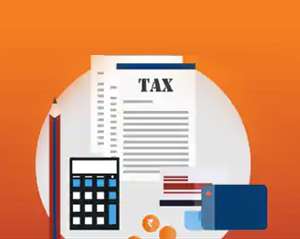What is Section 80D of The Income Tax Act, 1961?
Section 80D* of The Income Tax Act, 1961 offers a deduction of up to a total of ₹ 1 lakh in a financial year. Deduction under 80D can be claimed on the premiums paid towards a health insurance plan or a health rider for a life insurance plan.
The 80D deduction can be claimed for an insurance policy bought for yourself, spouse, children and parents. Tax deduction under Section 80D* can also be claimed by members of a Hindu Undivided Families (HUF).
The value of the tax deduction differs based on the age of the policyholder. Here’s how:
- Deduction of ₹ 25,000 can be claimed for a health plan covering oneself, spouse, and children, all below the age of 60 years
- Deduction of ₹ 25,000 is available for a health plan covering parents below the age of 60 years
- Deduction of ₹ 50,000 can be used for a plan covering oneself, spouse, and children, all aged 60 years and above
- Deduction of ₹ 50,000 can be applied for a plan covering parents aged 60 years and above
- HUF members below 60 years old can claim a deduction of ₹ 25,000
- HUF members aged 60 years and above can claim a deduction of ₹ 50,000
Benefits of Section 80D of The Income Tax Act, 1961
Below are some benefits of Section 80D*:
Deductions on Health Insurance Premiums
You can claim a deduction on the premiums paid towards a health insurance plan or a health rider of a term plan. The deduction lowers your taxability and enhances the financial appeal of the insurance policy.
Preventive Health Check-up
Apart from the deduction on the premium for a health plan, you can also claim a deduction of up to ₹ 5,000 in a financial year on preventative health check-ups.
Coverage for Family Members
Deduction under Section 80D covers multiple members of the family. You can claim deductions on health insurance for yourself, as well as your spouse, children and parents. This helps to enhance your tax savings further.
Encouragement for Health Protection
The tax benefits under Section 80D can be seen as an incentive to invest in health insurance. They encourage people to purchase health plans, which secures their financial safety during a medical crisis.
Benefit for Senior Citizens
Section 80D deductions are more appealing for older people than those under 60. Senior citizens of 60 years and above the age of 60 can claim higher tax benefits of up to ₹ 50,000 compared to ₹ 25,000 for others.
COMP/DOC/May/2024/155/6113
How can the benefits of Section 80D in health insurance be availed?
To claim Section 80D* deduction benefits on your health insurance premiums, you need to provide a proof of payment. Make sure that the payment is made through a non-cash mode, such as credit or debit cards, bank transfers or UPI payments.
You must ensure to submit the necessary documents while filing your Income Tax Return (ITR) to claim the deduction successfully.
Eligibility criteria for deduction under Section 80D?
Below is the eligibility for claiming deduction under Section 80D of The Income Tax Act, 1961:
- Individual Eligibility: Individual taxpayers and Hindu Undivided Families (HUFs) can claim deduction under Section 80D
- Family Coverage: The deduction can be claimed for health insurance bought for self, spouse, dependent children and parents
- Health Insurance Policies: All health insurance plans qualify for the deduction under Section 80D. Additionally, health insurance riders, such as critical illness riders, which can be added to life insurance plans are also eligible for deductions
- Maximum Deduction Limits: The maximum cumulative 80D mediclaim deduction limit is ₹ 1 lakh. However, it can differ based on the age of the policyholder. Below is the breakdown of the deduction limits:
- Deduction for self, spouse and children below the age of 60: ₹ 25,000
- Deduction for parents below the age of 60: ₹ 25,000
- Deduction for self, spouse and children above the age of 60: ₹ 50,000
- Deduction for parents above the age of 60: ₹ 50,000
- Members of HUF below 60: ₹ 25,000
- Members of HUF above 60: ₹ 50,000
What deductions are allowed under Section 80D?
Money spent on maintaining a health insurance policy can be claimed under section 80D. The amount is limited by the age of the insured under the plan. Below restrictions apply to people (insured under the policy) aged below 80 years:
| Insured | Deduction Amt. (`) | |
|---|---|---|
| Age Below 60 yrs. | Age Above 60 yrs. | |
| Self, Spouse |
25,000 | 50,000 |
| Parents | 25,000 | 50,000 |
| 50,000 | 1,00,000 | |
| 5,000 | 5,000 | |
Table 1: Medical Deduction u/s 80D
In case of people over 80 years of age, health insurance is usually not available. Thus, the deduction of
Therefore, the maximum deduction that you can claim under this section is
*Preventive Healthcare Expenses: If your total insurance premium paid is less than the maximum allowed limits for any of the categories, then up to `5,000 can be claimed for a preventive health check of your family in the financial year, within the said limits.
What are the exclusions under Section 80D?
The following payments are excluded from deductions under Section 80D*:
- Premium payments made in cash are excluded from deductions
- Payments for non-dependent family members, such as siblings, working children, grandparents or other relatives, are excluded from the 80D* deduction list
- If your employer pays for your group health insurance, you cannot claim a deduction under Section 80D*
Health Insurance Tax Benefits for Senior Citizens
In India, senior citizens can avail of the health insurance tax* benefits under Section 80D of The Income Tax Act, 1961. These benefits can be claimed by the senior citizen themselves, or their children if they are paying for the health insurance of their senior citizen parents.
Section 80D offers tax deductions on health insurance premiums of up to a maximum limit of ₹ 25,000 in a financial year. You can claim deductions for a policy bought for yourself, your spouse and your dependent children. If you invest in health insurance, you can get deduction up to ₹ 25,000 under Section 80D for yourself and your family (₹ 50,000 if age of insured is 60 years or above) and up to ₹ 25,000 (₹ 50,000 if age of insured is 60 years or above) for your parents. Further, you can also claim a tax deduction of ₹ 5,000 per annum on preventive healthcare for your family.
What payments are eligible as deduction under Section 80D?
| Type of tax deduction | Mode of payment |
|---|---|
| Health insurance premiums | All modes of payment are accepted for health insurance premiums, except for cash |
| Preventive health check-ups | All modes of payment are accepted for preventive health check-ups. This includes debit cards, credit cards, UPI and cheques |
COMP/DOC/Feb/2024/132/5454
Medical expenses
Medical expenses incurred for senior citizens aged 60 years and above can be claimed as a deduction of up to ₹ 50,000 under Section 80D*, provided you do not have an active health insurance policy.
Contribution to CGHS/notified scheme
You can claim a deduction of up to ₹ 25,000 for contributions made to the Central Government Health Scheme (CGHS) or any other notified scheme for yourself.
What is a preventive health check-up under Section 80D?
A preventive health check-up under Section 80D refers to a deduction allowed by The Income Tax Act, 1961, for expenses incurred on health check-ups. It was introduced by the government in the financial year 2013-14 with the purpose of preventing the onset or worsening of illnesses. The tax deduction encourages individuals to take a proactive approach towards maintaining good health. Under Section 80D, individuals can claim a deduction of up to ₹ 5,000 for payments made towards preventive health check-ups. This deduction can be availed by the taxpayer for themselves, their spouse, dependent children or parents. The payment for preventive health check-ups can be made in cash.
- Inclusion in Section 80D: It is important to note that this deduction is part of the overall limit specified under Section 80D, which is ₹ 25,000 for individuals and ₹ 50,000 for senior citizens. This means that the total deduction, including amounts spent on preventive health check-ups, should not exceed the overall limit
- Frequency and Limits: The frequency at which preventive health check-ups are eligible for deduction is on a per financial year basis. Taxpayers can claim a deduction of up to ₹ 5,000 for preventive health check-ups conducted during the financial year
- Approved Institutions: Specify the recognized institutions or hospitals where these check-ups must be conducted for eligibility
- The benefits under Section 80D are in addition to the tax benefits available under Section 80C
- Hindu Undivided Families (HUFs) can also claim tax deductions under The Income Tax Act, 1961
- It is important to carefully review the tax exemptions included in your health insurance policy
- To qualify for the deduction, the premium must be paid through a non-cash method, except for preventive health check-ups
- Paying a health insurance premium in full offers tax benefits for the entire duration of the insurance policy
- It is important to be up to date with the latest tax laws at all times, as they are subject to change
- The benefits under Section 80D are in addition to the tax benefits available under Section 80C
- Hindu Undivided Families (HUFs) can also claim tax deductions under The Income Tax Act, 1961
- It is important to carefully review the tax exemptions included in your health insurance policy
- To qualify for the deduction, the premium must be paid through a non-cash method, except for preventive health check-ups
- Paying a health insurance premium in full offers tax benefits for the entire duration of the insurance policy
- It is important to be up to date with the latest tax laws at all times, as they are subject to change
Important Points to Remember
Below are a few things to note when availing of tax deductions under Section 80D:
- The benefits under Section 80D are in addition to the tax benefits available under Section 80C
- Hindu Undivided Families (HUFs) can also claim tax deductions under The Income Tax Act, 1961
- It is important to carefully review the tax exemptions included in your health insurance policy
- To qualify for the deduction, the premium must be paid through a non-cash method, except for preventive health check-ups
- Paying a health insurance premium in full offers tax benefits for the entire duration of the insurance policy
- It is important to be up to date with the latest tax laws at all times, as they are subject to change
COM/DOC/Apr/2023/244/2848
People like you also read ...








